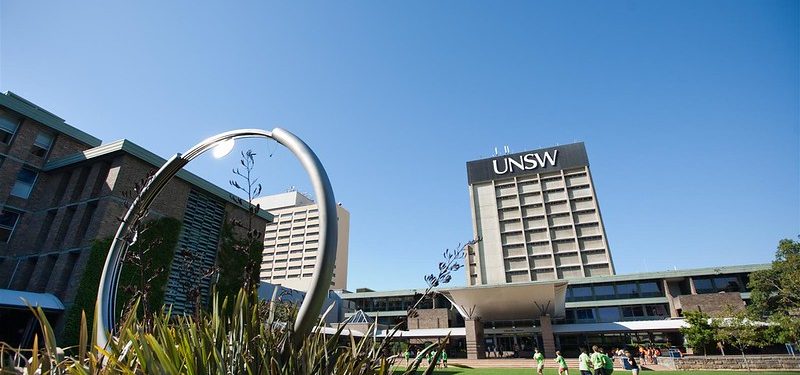UNSW Sydney has signed an AUD$100 million joint venture to establish a research and development institute in China aimed at promoting international partnerships and accelerating the commercialisation of new medical devices, renewable energy and advanced manufacturing products.
News and business analysis for Professionals in International Education
Have some pie!
UNSW announces R&D venture with QIAP in China
 UNSW is the first institution to sign an agreement with QIAP. Photo: unsw.flickr
UNSW is the first institution to sign an agreement with QIAP. Photo: unsw.flickr Under the five-year agreement, UNSW’s commercialisation company NewSouth Innovations Pty Ltd will partner with the Qingdao International Academician Park in Shandong province to form the UNSW China Advanced Technology Industrial Research Institute.
“The research…to be conducted under this agreement has exciting potential”
UNSW is the first institution to sign an agreement with QIAP, which has agreements with more than 90 international academicians from countries including the US, Canada, Japan, Germany and India.
Launched in 2016, the QIAP aims to motivate the regional economy by attracting worldwide academicians to carry out high-end scientific research and helping commercialise their research results.
The institute will involve a contribution by QIAP of approximately AUD$100m, with UNSW providing support in the form of academic staff to work on R&D projects, advancing patents for commercialisation in China and abroad, and professional support.
In a statement, UNSW said it consulted and will continue to engage with a range of Australian government agencies to ensure due diligence and compliance with government guidelines, including the newly established University Foreign Interference Taskforce.
“I am grateful for the support of our government agencies in assisting UNSW to conduct due diligence and helping us to put in place appropriate safeguards at a time of particular sensitivity about these types of agreements,” UNSW president and vice-chancellor Ian Jacobs said in a statement.
“The research in bioscience and technology to be conducted under this agreement has exciting potential.”
UNSW’s deputy vice-chancellor, Nicholas Fisk said the institute would increase opportunities for research engagement and commercialisation of UNSW intellectual property with Chinese and international industrial partners, including spin-off companies.
“The partnership… is an important initiative that will close the gap between UNSW-led research and transferring the resulting [intellectual property] to rapidly expanding commercial markets in China and around the globe,” Fisk said.
“It is also envisioned that the institute will provide a collaborative basis to assist Australian companies to expand their export opportunities into China, bringing additional benefits to Australia in general.”
Still looking? Find by category:


